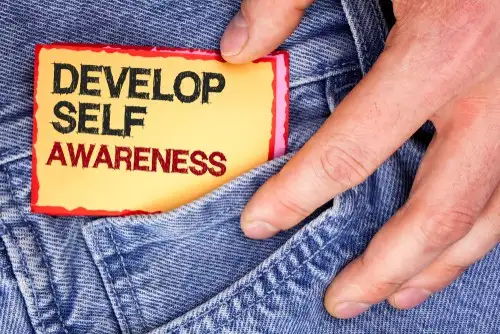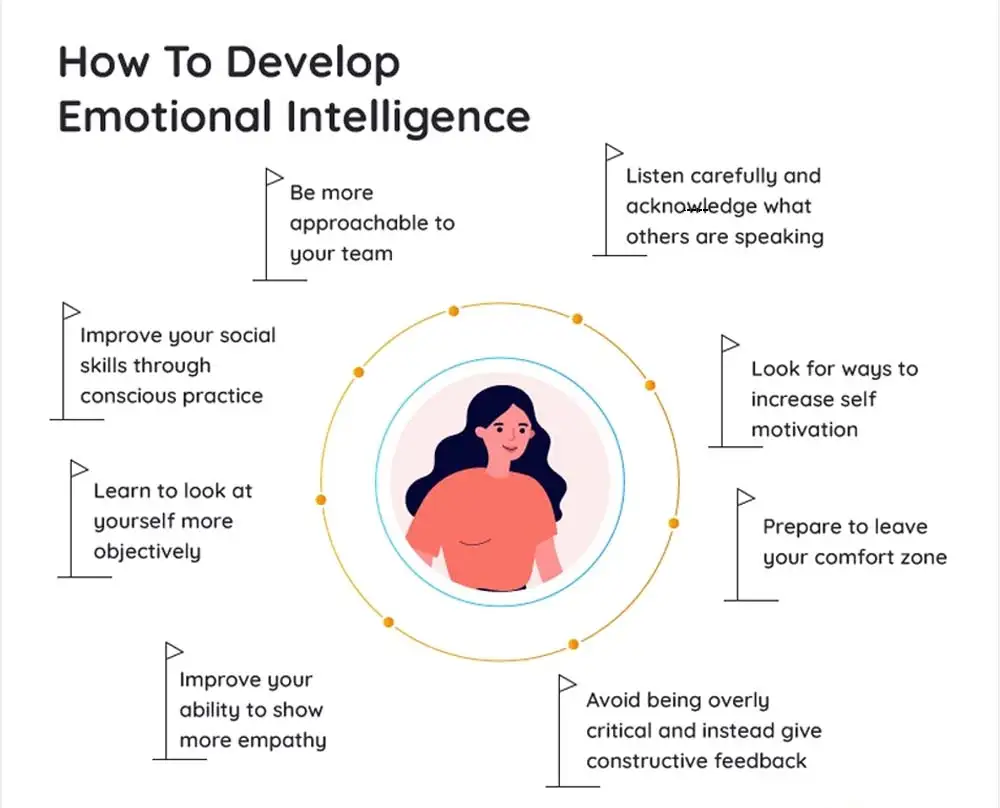Physical Address
304 North Cardinal St.
Dorchester Center, MA 02124
Physical Address
304 North Cardinal St.
Dorchester Center, MA 02124

Emotional Intelligence (EI) is the ability to recognize, understand, and manage your own emotions while being attuned to others' feelings. Popularized by Daniel Goleman, EI is key to success in both personal and professional life, offering a unique advantage beyond traditional IQ.
Emotional Intelligence (EI), or Emotional Quotient (EQ), refers to the ability to recognize, understand, and manage our own emotions while also being aware of the emotions of others. This concept, popularized by psychologist Daniel Goleman, plays a crucial role in both personal and professional success. Unlike IQ (Intelligence Quotient), which measures cognitive abilities, EI focuses on the softer skills that are essential for navigating social complexities.

Self-awareness is the foundation of emotional intelligence. It involves understanding your own emotions, recognizing how they affect your thoughts and behavior, and knowing your strengths and weaknesses. A self-aware individual can remain objective and avoid reacting impulsively in emotionally charged situations. They are more likely to make rational decisions, even under stress.
Self-regulation is about managing your emotions in a healthy way. It allows you to stay in control of your feelings, preventing them from negatively influencing your actions. People with strong self-regulation skills tend to be calm, adaptable, and less likely to make impulsive decisions. They are also better at handling conflict and stress, which makes them more reliable in challenging situations.
Intrinsic motivation, driven by personal goals and values, is a core part of emotional intelligence. Individuals with high motivation are more resilient, optimistic, and goal-oriented. They don’t rely solely on external rewards to push them forward, making them highly effective in achieving long-term success.
Empathy is the ability to understand and share the feelings of others. This skill is critical in building strong relationships, as it allows you to see things from another person’s perspective. Empathetic individuals are better at managing teams, resolving conflicts, and providing support when needed. In the workplace, empathy fosters collaboration and improves morale.
Social skills involve effective communication and the ability to build and maintain relationships. People with high EI are skilled at managing interpersonal relationships, resolving disputes, and leading by example. They are often excellent communicators, using both verbal and non-verbal cues to express themselves clearly and understand others. Their ability to connect with others makes them influential leaders and valued team members.
Emotional intelligence allows you to communicate more effectively by understanding the emotional tone of conversations. When you can sense the mood or emotional state of others, you can adjust your approach, leading to more productive discussions and fewer misunderstandings.
High EI fosters deeper, more meaningful relationships. By being empathetic and emotionally available, you can strengthen personal bonds, build trust, and resolve conflicts more easily. People with high emotional intelligence are often seen as more approachable and supportive, making them valuable in both personal and professional environments.
Emotionally intelligent people are better at managing stress and thinking clearly under pressure. They are able to weigh the emotional and rational aspects of a situation, leading to more balanced and thoughtful decision-making. This ability is particularly valuable in leadership roles, where emotional regulation can affect team dynamics and outcomes.
Developing emotional intelligence contributes to better mental health. It enables you to manage your emotions rather than being overwhelmed by them. By maintaining emotional balance, individuals can reduce stress, anxiety, and depression. This emotional resilience allows for a healthier mindset and overall well-being.

Regularly evaluate your emotions and how they impact your thoughts and actions. Journaling or meditating can help increase self-awareness by helping you recognize patterns in your emotional responses.
Developing coping mechanisms, such as deep breathing exercises or mindfulness, can improve self-regulation. When you’re calm, you’re better able to manage your reactions to stressful situations.
Constructive feedback helps you understand how your emotions affect those around you. This can offer valuable insights into areas where you can improve empathy and social skills.
Try to see things from other people’s perspectives. Actively listening to others and acknowledging their emotions can improve your empathy and help strengthen your relationships.
Practice clear and respectful communication. Pay attention to non-verbal cues such as body language and tone of voice. Learning how to read these signs helps in understanding the emotions of others.
Emotional Intelligence is not just about understanding emotions; it’s about using that understanding to interact with others in a positive and productive way. Whether in personal relationships or professional environments, high EI is linked to greater success, healthier relationships, and improved mental health. By working on self-awareness, self-regulation, empathy, and social skills, anyone can enhance their emotional intelligence and become more effective in all areas of life.